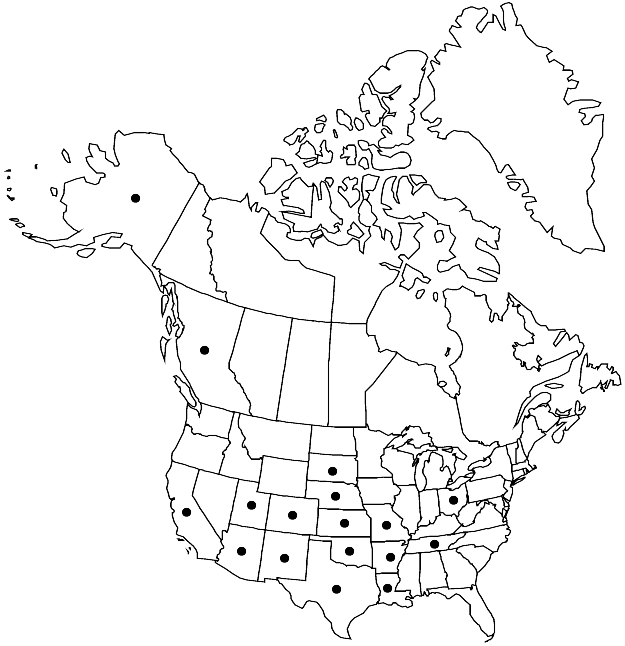Orthotrichum diaphanum
Muscol. Recent. 2(2): 29. 1801.
Plants 0.2–0.7 cm. Stem leaves loosely erect when dry, ovate-lanceolate to oblong, 1.8–3 mm; margins revolute nearly to base of awn, ± serrate in awn; apex gradually acute, awn present, hyaline; basal laminal cells broadly rectangular, walls thick, not nodose; distal cells 14–24 µm, 1-stratose, smooth or papillae 1 or 2 per cell, conic, small. Specialized asexual reproduction by gemmae on leaves. Sexual condition autoicous. Seta to 1 mm. Capsule immersed to emergent, oblong to oblong-cylindric, 1.2–1.8 mm, wrinkled or moderately 8-ribbed when dry; stomata immersed; peristome double; prostome absent; exostome teeth 16, reflexed when old and dry, longitudinally striate or coarsely and densely papillose; endostome segments 16, not well developed, of 1 or 2 rows of cells, densely papillose. Calyptra conic-oblong, smooth, naked or hairs few, smooth. Spores 13–20 µm.
Habitat: Base and trunks of trees below 2 m, dry, usually exposed areas, rock
Elevation: low to moderate elevations (100- 1000 m)
Distribution

B.C., Alaska, Ariz., Ark., Calif., Colo., Kans., La., Mo., Nebr., N.Mex., Ohio, Okla., S.Dak., Tenn., Tex., Utah, South America (Uruguay), Europe, n Asia, Africa (Algeria), Atlantic Islands (Canary Islands).
Discussion
Orthotrichum diaphanum is distinguished by the hyaline awns of the distal stem leaves. Gametophytically, O. diaphanum is most closely related to O. pumilum, with which it shares the following attributes: large chlorophyllose laminal cells lacking large papillae, presence of numerous gemmae, and ovate-lanceolate leaves. Orthotrichum pumilum has apiculate leaf apices that often are similar to those found on young plants of O. diaphanum. The stomata are found at mid capsule.
Selected References
None.